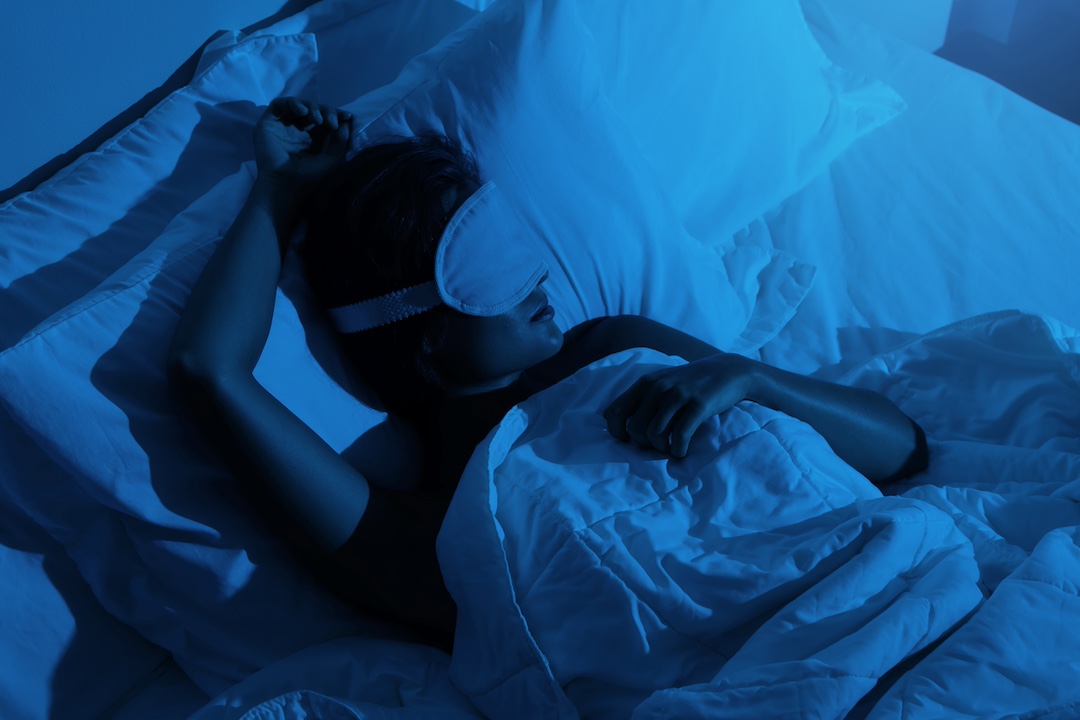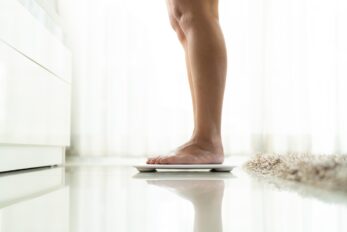As we grind our way through busy days, a good night’s sleep can often take a backseat to every other thing we need to do. But adults require at least 7-9 hours of sleep each night. When we don’t get enough sleep, we open the door to health problems, ranging from being more susceptible to catching colds to weight gain to an increased risk of developing heart disease, diabetes or Alzheimer’s. And, when it comes to women and sleep, we know that more than 60% are falling short night after night.
Why is that?
Well, there could be an underlying medical condition, but women tend to try to burn that candle from both ends. We take on varied roles, as caregivers, professionals, partners, and friends, trimming extra hours for tasks from sleep time. We overlook our self-care and forget that sleep plays a crucial role in supporting overall vitality and resilience.
It’s very simple, if we want to do more, we need to sleep more.
Understanding Women’s Unique Needs:
Ladies, did you know that your sleep needs differ from men’s in several ways? From hormonal fluctuations to lifestyle factors, various influences can impact the quality of your sleep. Whether you’re experiencing the joys of motherhood, navigating the challenges of menopause, or balancing a demanding career, it’s essential to recognize and address these unique factors at every stage of life.
Adapting to Life’s Changes:
From the onset of puberty to the transition into menopause, a woman’s sleep undergoes significant changes influenced by hormonal shifts. During menstruation, fluctuations in estrogen and progesterone levels may disrupt sleep, leading to insomnia, mood disturbances, and fatigue. Pregnancy brings its own set of challenges, including discomfort, frequent urination, and even more hormonal changes. Menopause is often accompanied by hot flashes, night sweats, and broken sleep, making it essential for women to prioritize sleep health during this transition. Recognizing these shifts should empower us all to arm ourselves with the knowledge to take our health into our own hands and to reach out for support when needed.
Women, Sleep and Work:
Women’s sleep patterns can be significantly impacted by their work responsibilities, especially for those balancing career demands with caregiving and household duties. Irregular work schedules, shift work, and long hours can disrupt sleep routines contributing to sleep disturbances. Additionally, workplace stress, deadlines, and job-related pressures can lead to heightened anxiety and difficulty winding down before bedtime.
Women and Shift Work:
Female shift workers face unique challenges in maintaining healthy sleep habits due to irregular work schedules. Shift work disrupts the body’s natural circadian rhythm, leading to sleep disturbances and increased risk of sleep disorders. To mitigate these effects, prioritize sleep hygiene practices, such as creating a cool, dark, quiet sleep environment and maintaining a consistent sleep schedule, even on days off. Incorporate short naps before shifts to combat fatigue and when there are shift changes, gently move your sleep time to coincide with the change in shift to ease the body’s transition.
Women and Insomnia:
Insomnia, characterized by difficulty falling or staying asleep, is a common sleep disorder that disproportionately affects women. In fact, studies suggest that the lifetime risk of being diagnosed with insomnia is 40% higher for women than it is for men. Stress, anxiety, hormonal fluctuations, and lifestyle factors can contribute to insomnia in women. It’s essential to address underlying causes and implement strategies to promote better sleep hygiene.
Women and Sleep Apnea:
Sleep apnea is a sleep disorder that affects both men and women, although it’s often underdiagnosed in women. Loud snoring is a common symptom in men, while women may present with subtler signs such as fatigue, mood swings, and difficulty concentrating. Hormonal fluctuations, pregnancy, and menopause can increase the risk of sleep apnea in women. Untreated sleep apnea can lead to serious health complications, including heart disease, hypertension, and stroke. Therefore, it’s essential for women to recognize the symptoms and to seek proper evaluation and treatment to safeguard their health and well-being.
Why are women underdiagnosed when it comes to OSA?
- Atypical Symptoms: Women may present with different symptoms than men, such as insomnia, fatigue, depression, or anxiety, rather than the more stereotypical symptoms like loud snoring commonly associated with sleep apnea. As a result, healthcare providers may not immediately recognize these symptoms as indicative of sleep apnea.
- Misinterpretation of Symptoms: Due to the perception that sleep apnea primarily affects men, healthcare providers may overlook or misinterpret symptoms in women, causing delayed or missed diagnoses.
- Hormonal Factors: Hormonal fluctuations throughout a woman’s life, including during pregnancy, menstruation, and menopause, can influence sleep patterns and mask the symptoms of sleep apnea. Additionally, hormonal changes may affect the severity and presentation of sleep apnea in women, further complicating diagnosis.
- Underrepresentation in Research: Historically, research on sleep disorders has focused predominantly on men, leading to a lack of awareness and understanding of how sleep apnea presents in women. This underrepresentation in research can contribute to limited knowledge and awareness of sleep apnea in women.
- Stigma and Stereotypes: There may be stigma and stereotypes surrounding sleep apnea as a “male-dominated” condition, which can discourage women from seeking evaluation and treatment for their symptoms. Women may also feel embarrassed or reluctant to discuss symptoms such as snoring or daytime sleepiness with their healthcare providers.
Breaking the Stigma of Sleep Apnea:
One common concern among women is the stigma associated with sleep apnea and the use of CPAP therapy. Let’s break the stigma together and embrace the path to better sleep. Seeking treatment for sleep apnea is a proactive step towards improving our health and well-being. By addressing sleep apnea, we can enhance our overall quality of life and reduce the risk of associated health complications.
Practical Tips for Better Sleep:
- Establish a Consistent Sleep Schedule: Aim to go to bed and wake up at the same time every day, even on weekends, to regulate your body’s internal clock.
- Create a Relaxing Bedtime Routine: Wind down before bed with calming activities such as reading, meditation, or a warm bath to signal to your body that it’s time to sleep.
- Optimize Your Sleep Environment: Make your bedroom a sanctuary for sleep by keeping it cool, dark, and quiet. Invest in a comfortable mattress and pillows to support quality sleep. Use blackout curtains, eye masks and white noise to block ambient light and sound.
- Seek Support and Resources: Don’t hesitate to reach out to healthcare providers for guidance and assistance with sleep-related concerns.
- Embrace CPAP Therapy: If you’ve been diagnosed with sleep apnea, consider the benefits of CPAP therapy as a safe and effective treatment option.
Conclusion:
Ok ladies, let’s prioritize self-care and embrace the journey towards better sleep together. By taking care of ourselves, we’re better equipped to care for those we love and fulfill our many roles with grace and energy. Here’s to empowering all women to live our best lives, one restful night’s sleep at a time.
If you’re experiencing persistent sleep issues or have concerns about your sleep health, consider booking a consultation with us. Whether you’re struggling with insomnia, sleep apnea, or adjusting to shift work, we’re here to help with effective solutions to reclaim your energy.






